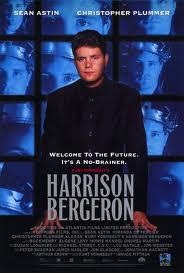"Too Shabby" is the third full length album released by West Virginia punk rock band Rozwell Kid. This album clearly takes a lot of influence from older punk rock acts such as Weezer, Jimmy Eat World, and The Get Up Kids. Weezer seemingly being the most influential of these bands Rozwell kid is often touted as a modern day iteration of the band. Their sound is incredibly distinct due to impressive guitar playing from lead guitarist and singer Jordan Hudkins. Hudkins is able to show off his guitar skills while also maintaining a catchy melody bringing the whole sound together.
Another distinct aspect of this band is their less than serious sound, vocals at times become what some might consider lazy but these moments give this band character that other acts are lacking. This character that the band is seemingly portraying also makes its way into live performances.
Rozwell Kid put on some of the most energetic live performances that I have ever seen, they maintain this energy and charisma while also playing each song perfectly.
The highlights of this album in my opinion are tracks "Sick Jackets", and "Weirdo". Sick Jackets opens with an explosive guitar riff complimented by powerful drums and followed instantly by a hooking vocal melody from Hudkins. Here the band shows their less than serious nature with the title coming into the chorus with the line "At least we have sick jackets".
"Weirdo" opens similarly and begins with a deviously catchy guitar riff before allowing Jordan Hudkins and bassist Devin Donnelly to grab listeners attention with strong vocal harmonies. Rozwell kid on this song has seemingly mastered the idea of using simple song structure combined with their distinct style to create a fantastic song. Lyrically this band does not try to be deep or reach for more meaning than they are capable of instead they keep their ideas simple and still manage to get a point across.
"I say I'm sorry when I'm helping you out
I don't know
I say I'm sorry when I open the door
I don't know
Keep all the girls inside
cause I'm a weirdo"
Although this verse is worded simply and involves the writer himself saying "I don't know" multiple times it still manages to paint an image of what every day life is like for him. The way I read this is that the author feels uncomfortable around other people in particular around girls. The author does not know why they feel this way or why they are constantly apologizing when being polite.
Wording lyrics simply has a nice way of making the listener feel an easy connection to a song. Rozwell kid takes the idea that not every song has to be a lyrical masterpiece and uses this to create simple verses that are still easily related to and enjoyable.
Overall, this album is a fun catchy piece of music that will be sure to catch your ear right away. While they are not reinventing the genre or even their own sound, Rozwell Kid has managed to make a genre that has been played many times before feel like their own. Because of this Rozwell Kid is an essential band to follow in the coming years for anyone who enjoys this style of music.






